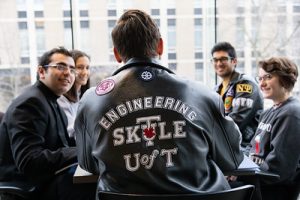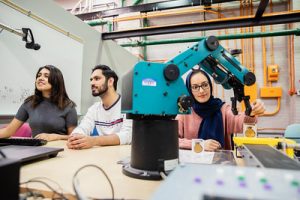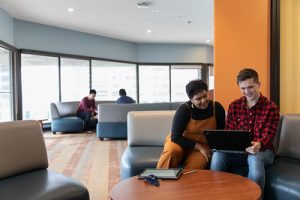Engineering for the World (E4TW)
For generations, U of T Engineering students have proudly displayed “E4TW” on their Skule™ jackets. But what does it mean to be an “engineer for the world”?
The practice of engineering transcends borders. Successful engineering leaders are well versed in the social, economic and cultural contexts in which their innovations will be applied. It is equally important for engineering teams to include voices and perspectives from around the globe, both to strengthen creativity and to ensure that technological solutions truly address the needs of local populations.
Whether you aspire to improve access to clean water, leverage AI to support health care, or create more sustainable ways to move people through urban environments, your success depends on being able to think and act with a global perspective.
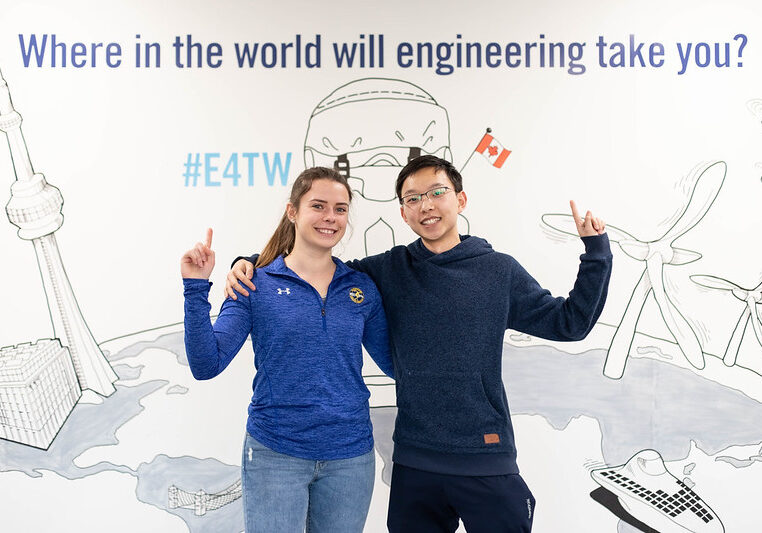
#E4TW
We are proud of all the ways our students and alumni inspire change in their communities and around the world.
Click on the markers below to learn about projects happening across the globe.
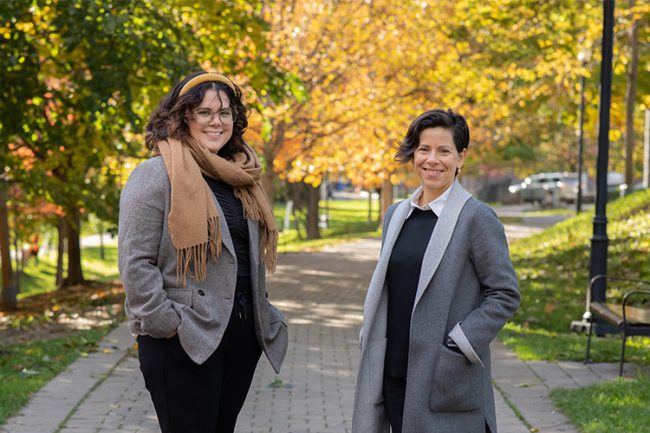
Canada
With thousands of wells and counting, the Northeast region of British Columbia is one of Canada’s most important hubs of hydraulic fracturing, or fracking — the process of blasting pressurized liquid at rock formations to fracture them and release the natural gas trapped inside.
U of T’s Élyse Caron-Beaudoin and Marianne Hatzopoulou (CivMin) are working together to shed light on how fracking impacts air quality for B.C. communities and residents’ exposure to contaminants.
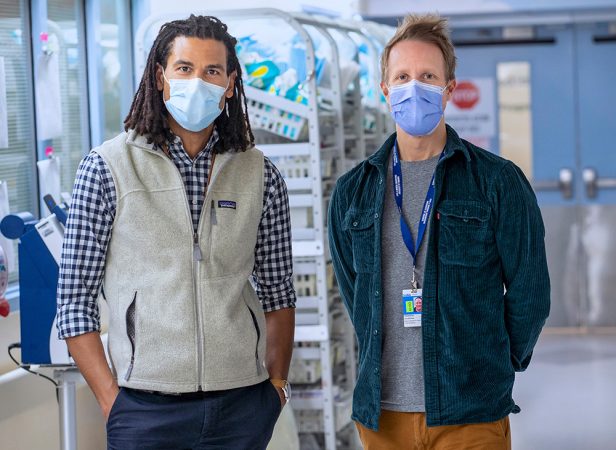
Australia
Professor Sebastian Goodfellow (CivMin, right) and his collaborators are using AI algorithms to analyze electrocardiograms, wit hthe hope of detecting the early warning signs of junctional ectopic tachycardia (a type of heart arrhythmia). The team includes researchers at The Hospital for Sick Children (SickKids) in Toronto and other pediatric hospitals, such as the Children’s Hospital at Westmead in Sydney, Australia and Rambam Health Care in Haifa, Israel.
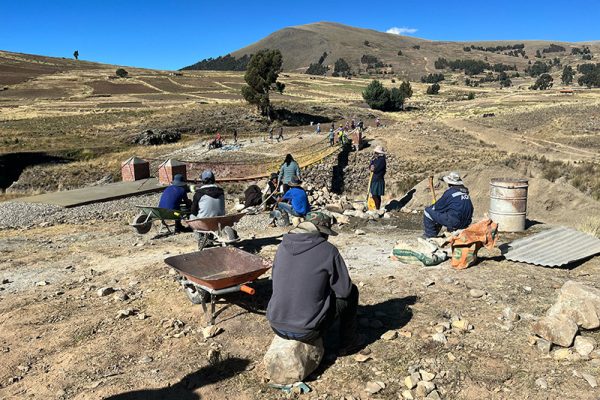
Bolivia
In early May, two members from the U of T Chapter of Engineers In Action – Luna Amador and Michelle Leon (both CivMin 2T2 + PEY) – traveled to Suraj Mayu, Bolivia to participate in the month-long construction of a new bridge. The site experiences flooding for approximately 150 days each year, and the newly constructed bridge will improve the safety and accessibility for approximately 950 community members by providing a reliable pathway to reach a school and a community health centre.
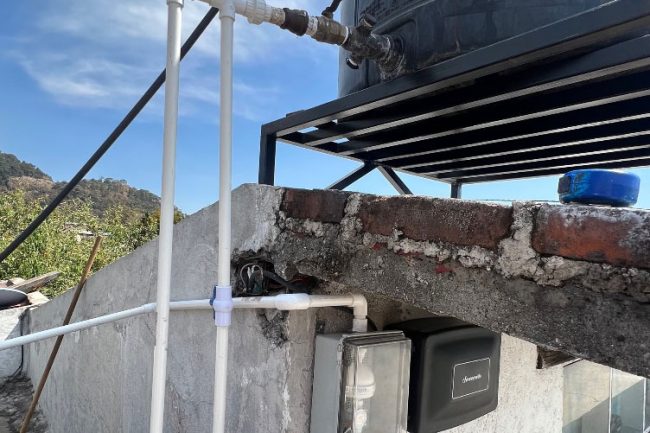
Mexico
Mistelle Haughton (CivMin MASc candidate), Karlye Wong (CivMin PhD candidate) and Professor Ron Hofmann (CivMin are collaborating with peri-urban communities in Mexico to field test solar-powered UV disinfection systems for rainwater harvesting. These systems have the potential to be more sustainable than the chlorine-based treatment that is currently the industry standard.
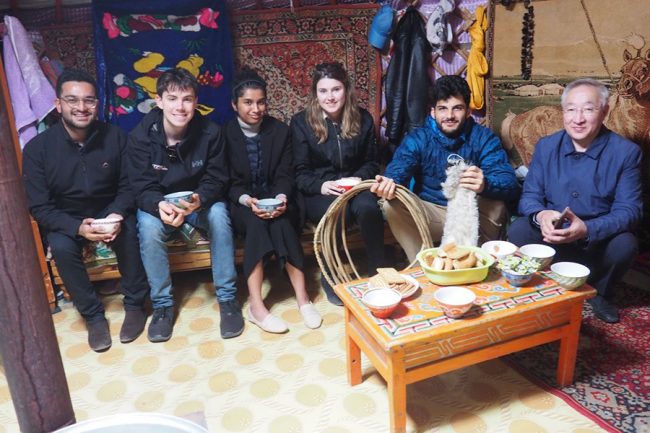
Mongolia
Ben Sprenger (Year 4 MIE) spent two weeks in the summer of 2019 talking to Mongolian nomads about portable solar generators.
The Mongolian project was coordinated by the Reach Alliance from U of T’s Munk School of Global Affairs & Public Policy. Working in a team that included fellow U of T students Hannah Rundle (Munk School MGA candidate), Rushay Naik (Health Policy MSc candidate) and Tanvi Shetty (Munk School MGA candidate) Sprenger conducted interviews to understand the impact of the Mongolian government’s 100,000 Solar Ger (Yurt) Electrification Program.
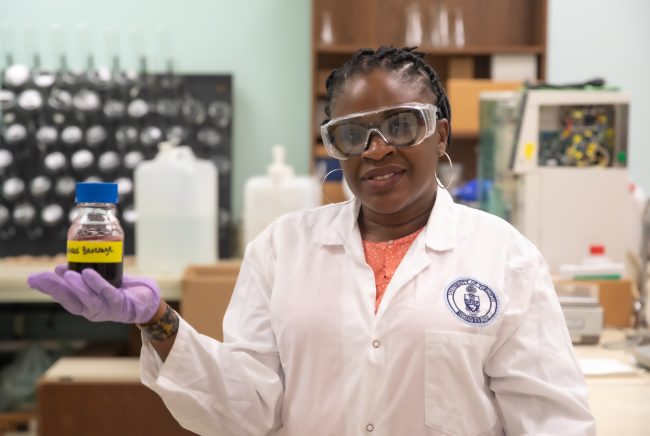
Nigeria
Folake Oyewole (ChemE PhD candidate) is developing an approach to improve the iron intake and uptake of vulnerable groups through the fortification of a popular Nigerian plant-based beverage.
Oyewole, whose thesis is supported by the Schlumberger Foundation’s Faculty for the Future Fellowship, has always been interested in value-added processing in food and beverages, particularly of resources that are indigenous to Nigeria. That passion led her to join the lab of Professor Levente Diosady (ChemE), who specializes in food engineering.
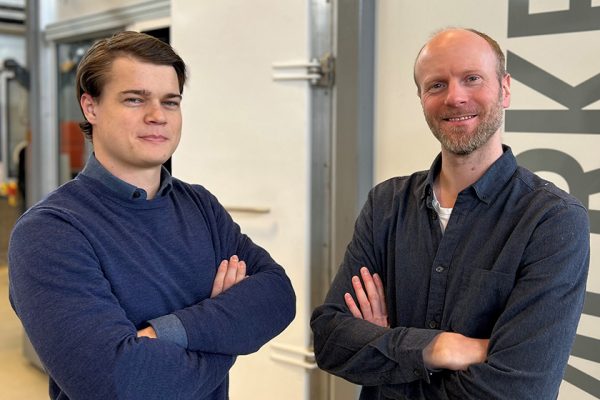
Norway
From May 2022 to July 2023, Ferdinand Toby-Strandborg (Year 3 MechE) worked with automation engineering Jon Forbord at Norsk Titanium, a company that uses a process called rapid plasma deposition (RPD) to produce structural titanium parts for the aerospace industry. He is one of 893 students who spent 12 to 16 months working in Canada or abroad through U of T Engineering’s PEY Co-op program.
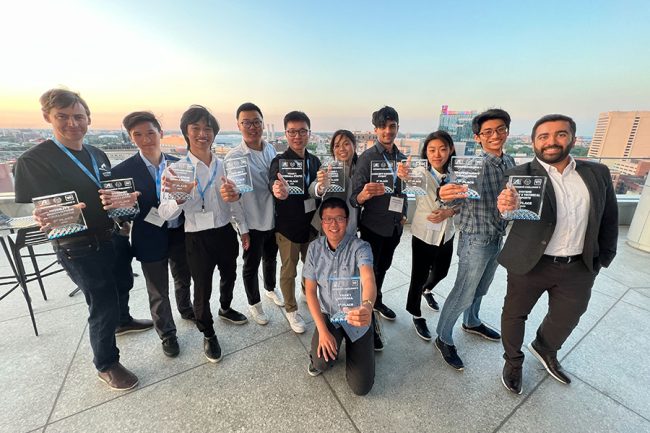
USA
In June 2022, U of T Engineering’s self-driving vehicle team aUToronto, took the top spot overall in the first competition of the four-year Autodrive Challenge™ II. The achievement continues an impressive winning streak for the team, which consistently placed first throughout the original four-year AutoDrive Challenge.
U of T Engineering and the broader University have created a wide range of ways for you to experience the world, both on and off campus, including:
Study Abroad
You can earn U of T credits while studying at one of our 160+ partner universities in another country for a term or a full year.
Work Abroad
Did you know that 10% of PEY Co-op work opportunities are located outside of Canada? Last year, 85 engineering students worked at companies abroad while earning competitive salaries and building impressive global networks.
Research Abroad
Many engineering students spend their summer months gaining research experience in partner institutions like Lund University in Sweden and Chinese University of Hong Kong. Engineering Science students can take part in the EngSci Research Opportunities Program.
Certificate in Global Engineering
Choose three courses from a list of options to earn the Global Engineering certificate designation; courses range from the effects of emerging technologies in developed and developing economies to global energy systems.
Global Capstone Courses
Capstone design projects are a highlight of the fourth-year engineering student experience. While many capstone projects focus on a particular industry challenge or local client need, some opportunities take student teams well beyond the walls of campus, such as those offered through our Centre for Global Engineering.
Student Clubs & Teams
Many student-led clubs and teams at U of T Engineering have a global focus. This is a wonderful way to meet like-minded students, participate in local and international development projects or competitions, and learn from professionals applying their engineering expertise in a global context.
Many of these experiences count toward U of T’s Global Citizen Program and can lead to a Global Scholar transcript notation.

